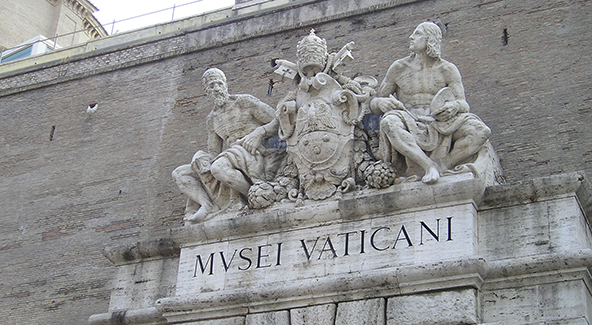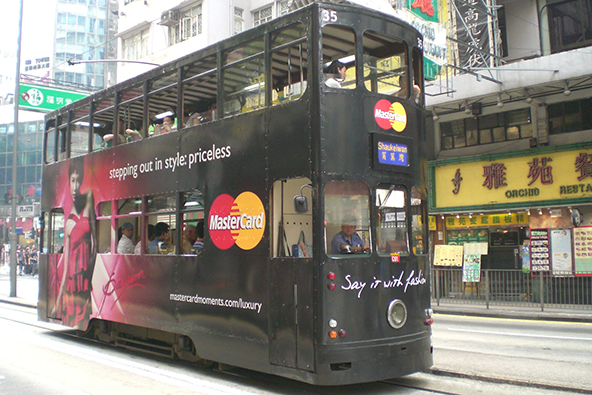On Credit Card Processing and Money Laundering Rules in the Vatican

My news feed is full of reporting and commentary on the Vatican’s latest run-in with the Italian central bank, which has led to the suspension of all credit and debit card payment processing activity on the territory of the Papal State (online payment processing is reportedly unaffected). It’s easy to understand why and it’s the same reason I’ve decided to weigh in — the whole thing is just too piquant to pass on.
Now, I should preface my comments with the following disclaimer: I am no expert on the regulatory framework of the Italian electronic payments industry and I didn’t even have a clue that said framework also governed credit card processing matters in the Vatican itself. However, the news coverage has made me feel somewhat better about my ignorance, as it has made it fairly evident that reporters for some of the world’s most respected financial news outlets are even more confused than I am. Oh, and yes, there is quite a bit in the story that I am still trying to grapple with.
Electronic Payments in the Vatican Suspended
Let’s start with the facts, as reported. Here is what Bloomberg tells us took place:
The Bank of Italy suspended electronic payments in the Vatican City because the papal state doesn’t comply with international money laundering rules.
The central bank found in an inspection in 2010 that Deutsche Bank AG (DBK)’s Italian unit, which had been operating the papal state’s point-of-service payment services since 1997, didn’t have the authorization to operate in the Vatican City, a Bank of Italy official said. The central bank on Dec. 6 refused a permit request to Deutsche Bank SpA because the Vatican lacks required banking and financial legislation, the official said. A Deutsche Bank spokeswoman for Italy declined to comment.
Well, Reuters quotes a “source close to the Bank of Italy [Italy’s central bank]” who does have a comment:
The Bank of Italy could not give the authorisation because the Vatican, apart from not respecting money laundering regulation, did not have the legal prerequisites. That is, it lacked banking and financial legislation and proper supervision.
So, if all that were true, I don’t think anyone should be surprised that payment card acceptance was suspended in the Vatican and that the Papal State’s credit card processor’s permit request was rejected. And yet, it seems to me that the most bewildering aspect of the reporting is that neither Bloomberg nor Reuters have even attempted to address a rather salient question: what took the Bank of Italy so long? After all, the central bank’s investigation was conducted in 2010! But the confusion doesn’t stop here; if anything, it is only just beginning.
Searching in All the Wrong Places
Now, having read the above-quoted news reports, a reasonable person might conclude that Deutsche Bank’s own transgressions, as listed in, say, Bloomberg’s piece, would be the least of the Vatican’s troubles; in fact they are clearly a direct consequence of the latter’s own faults. There is a much bigger issue at play here than a payment processor’s operating license, namely the Papal State’s non-compliance with international laws. That point is made quite clear by another of Reuters’ sources:
The Bank of Italy did not approve Deutsche Bank’s request for a licence because Italy does not see the Vatican as a fully compliant country under money-laundering norms.
And that makes perfect sense. It is just difficult to accept that a well-behaved global financial institution like Deutsche Bank’s troubles in obtaining a license in a European country would be internally-generated. Actually, I don’t believe it is possible. And yet, both Bloomberg’s and Reuters’ pieces are reporting of the Vatican’s search for another processor, as if that would solve the problem. Here is Reuters:
A Vatican statement said only that its agreement with a bank that previously supported point-of-sale payments had expired. It said talks were under way with other service providers and the interruption to electronic payments was expected to be “of brief duration”.
Amazingly, neither Reuters’, nor Bloomberg’s reporters are even attempting to explain how the finding of a new service provider could solve the problem, as the Bank of Italy, if it followed the same procedures it did when turning down Deutsche Bank’s request, would not license its proposed successor! Aren’t these reporters listening to what their own sources are telling them?
The Takeaway
Both Bloomberg’s and Reuters’ pieces are briefing us on the Vatican’s recent troubles in complying with pesky rules against money laundering and terrorism financing. Bloomberg, for example, reminds us that
Prosecutors seized 23 million euros from a Rome bank account registered to the IOR [the Vatican bank] amid suspicion or money-laundering violations. The Italian probe triggered calls to bring the city-state in line with European Union financial rules and become more transparent.
It seems to me that the Holy See could do worse than putting its own house in order, before continuing its search for a new payment processor.
Image credit: Wikimedia Commons.


Thanks for the information!